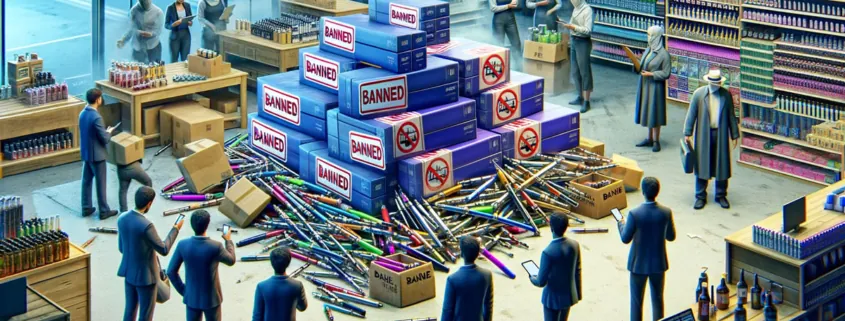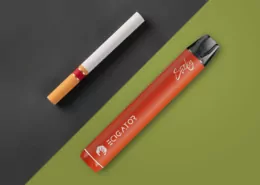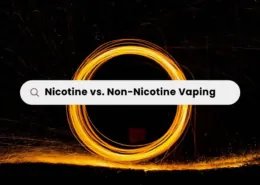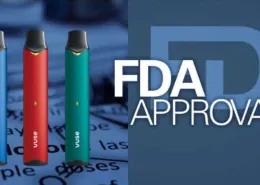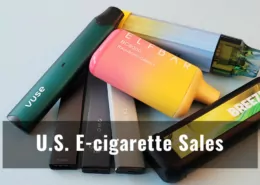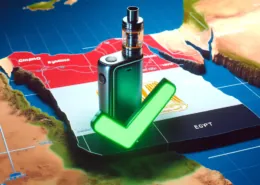New Regulations Place Millions of NZ Disposable Vapes in Jeopardy
With new vaping regulations set to take effect on December 21st, 2023 in New Zealand, millions of soon-to-be noncompliant disposable vape products face an uncertain fate. Retailers prepare to absorb significant losses either destroying stock or selling at steep discounts before the rules kick in.
Imminent Ban Drives Disposable Fire Sales and Stockpiling
Specialty vape outlets have turned to aggressive discounting to clear disposable inventory no longer legal for sale after December 21st. With only weeks to go before the ban, sites like The Vape Shop have entire sections labeled “pre-ban” disposables.
Director Morris Lazootin of The Vape Shop operator Michael Morris Limited estimates dumping 300,000 devices worth around $7 million if unable to sell off in time. And he warns of wider industry impacts reaching 8 to 10 million discarded units nationwide once sell-through avenues close according to discussions with other retailers.
Lazootin attributes this precarious position to overly restrictive device safety rules around removable batteries and nicotine limits requiring sudden liquidation:
“The government’s blanket bans have created a paradox where legitimate businesses face devastation while a black market flourishes. Forced to the brink, we either sell at a loss or discard millions in now noncompliant stock.”
In response, outlets incentivized buying sprees with deep discounts, free gifts, and bulk purchase incentives attempting to survive the abrupt regulatory shift.
Health Advocates Sound Alarm on Youth Access
While retailers highlight financial blows behind the disposable fire sales, health groups like the [Asthma and Respiratory Foundation NZ](https:// asthmaandrespiratory.org.nz/) warn of increased youth vaping risk from the low-priced stock liquidations.
CEO Letitia Harding admonishes disposables sold for as little as $2, equating to pocket change for kids:
“The quick fire sales mean it’s even easier for young Kiwis to get their hands on the harmful habit. At these prices, it’s no wonder we face a youth vaping epidemic. Vapes now sell at pocket money prices. This just shows callous profits over public health concern.”
With a typical disposable running around $10, prices at 20% of that mark dramatically lower the barrier keeping nicotine away from teens.
Retailers Firmly Defend Liquidation Sales
Facing criticism over sell-off tactics, vape outlets staunchly defend aggressive discounting as the only viable path forward to handle soon obsolete inventory while keeping adult smokers satisfied.
Vapo executive Ben Pryor explains the discounting aims to avoid stranding dependent customers and prevent waste rather than risk youth access:
“Our customers rely on these products to remain smokefree. We must clear shelf space of newly illegal stock to make room for complaint options people count on to avoid cigarettes. The short compliance window forced deep discounts as the only sensible option.”
Pryor asserts the New Zealand government created conditions promoting fire sales by allowing only three months to achieve compliance rather than the standard 6 to 12 months. This accelerated timeframe heightened pressure and inventory glut fuelling current discount mania.
Warnings of Stockpiling and Illicit Market Risks
While public health groups primarily worry about teen discount purchases, smoking cessation advocates including the chair of ASH NZ Robert Beaglehole focus concern on adult smokers stockpiling cut-price vapes to circumvent buying alternatives post-ban.
Beaglehole cautions limiting device nicotine levels risks pushing people back towards cigarettes unable to find vessels satisfying their nic dependence after current supplies vanish.
Vapo’s Pryor echoed illicit market warnings with regulations benefiting Big Tobacco long term by forcing vapers into cigarettes unable to secure preferred products legally. He asserts banning 97% of vape goods overnight leaves few options once personal stockpiles empty.
Government Defends Short Compliance Window
Both retailers and health experts reproached the New Zealand Ministry of Health over compressed timeframes for meeting new vape device rules. Typically past regulation shifts granted a minimum 6 to 12-month transition period enabling orderly sell-through.
Vaping Industry Association NZ chair Jonathan Devery contends accepted norms allowing sufficient certified inventory movement to market support retailers avoiding losses and customers avoiding disruption were discarded needlessly.
However, officials clarify initial proposals in June projected a three month compliance window. The August enactment postponed directives to adjust for the two month Ministry delay rather than reduce preparation timeframes.
They maintain six weeks from the June policy outline provided reasonable opportunity for businesses to strategize exiting non-approved merchandise. Furthermore, disposable prohibitions center on safety requirements with compliant products still allowed assuming proper guidelines adoption. So a blanket ban misrepresents regulations that still enable certain single-use devices legally produced and sold.
New Rules Spark Flood of Disposable Waste
With retailers resigned to dumping potentially millions of unsold units plus packaging and liquids post ban, New Zealand faces environmental fallout from suddenly obsolete disposable vape inventor around the country.
Lazootin from the Vape Shop warns of an “ocean of waste” from disposables and related materials no longer legal come December 21st. He flags 1.7 million pieces of packaging and 759 specialty vape juices vulnerable under updated guidelines around appropriate descriptions and warnings on labels and cartons.
Independent studies already show disposables severely impacting global waste streams as short lifecycle consumer items even without regulatory disruption. So abrupt product displacement risks magnifying landfill influx.
Recycling Provides Some Relief But Gaps Remain
With enormous volumes of plastic and lithium batteries destined for waste facilities, recycling emerged as one mitigation tactic for disposable vaping detritus.
Vapo currently operates recycling program VapeCycle allowing consumers to safely dispose of many device components. And they confirmed to The Spinoff any post-deadline stock would get recycled through this channel rather than enter landfills.
However Vape Industry Association chair Devery notes smaller manufacturers and retailers may lack stringent recycling access. For those businesses, rubbish or hazardous waste operations become the only destination for millions of non-compliant units.
So while recycling systems like VapeCycle make a positive impact, gaps still leave ample disposable waste flowing into local waste management lacking better options.
Health and Environmental Groups Back Restrictions Despite Waste
Health and sustainability advocates acknowledge short term waste headaches from disposables regulations. But public health, safety and ecological gains outweigh temporary disposal speedbumps.
CEO Harding from the Asthma and Respiratory Foundation sees removing youth-friendly disposables as crucial for confronting New Zealand’s “youth vaping epidemic”. Short term waste pales against the importance of restricting gateway access.
Likewise Zero Waste Network head Sue Coutts recognizes disposable waste as problematic regardless of regulations. By taking action now rather than allow unchecked disposable growth, New Zealand avoids larger long term waste issues down the road.
Coutts does admonish retailers for lack of preparation minimizing leftover stock given ample notification. But overall she firmly backs governmental steps to curtail an identified threat to Kiwis.
The Future of Vaping Regulations Under New Leadership
While Labour moved aggressively tightening access to nicotine vaping, the ascendant National coalition signals openness to prohibition given past support for exploring recreational vape bans. But deputy Prime Minister Luxon currently excludes vaping from his first 100 days of government.
So while stricter vaping oversight stays on the agenda longer term, addressing rules passed under old leadership ranks low on the new administration’s initial priority list. Their preference for individual choice unlikely to spur further blanket vaping constraints without compelling cause.
For now, retailers simply hope to survive coming disposable detonations and pray future shockwaves of regulatory volatility smooth into steadier waters.
- Kazakhstan Seizes 150k Illegal Vapes in Almaty Raid - July 30, 2025
- Brazil Police Crack Down on E-Cigarette Smuggling - July 30, 2025
- Experts Urge South Africa to Adopt Science-Based Vape Policies - July 30, 2025

